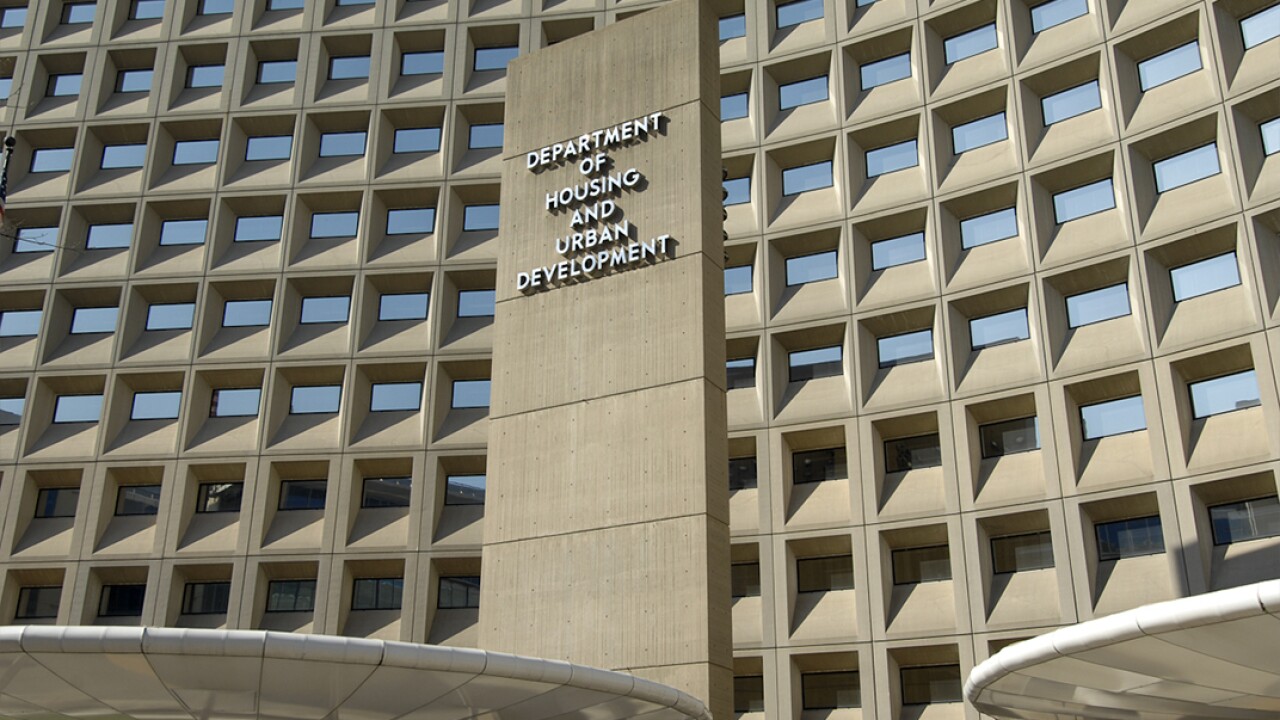WASHINGTON - Brian C. Roseboro, the Treasury Department's under secretary for domestic finance, dismissed criticism that talk of limiting the debt issuances of Fannie Mae and Freddie Mac is a bluff designed to scare the two companies.
Mr. Roseboro, who was sworn in as the Treasury's point man on financial services just last month, said he is struck by how personal the debate over the government-sponsored enterprises has become.
"What surprises me the most are the politics, the lobbying, the wrangling, the spin that people want to put on what I consider genuine legitimate concerns," he said in an interview Thursday. "People want to put a pitchfork in your hand and say that you are out to ruin housing for everybody."
His tone in discussing this controversial issue was measured and confident. He matter-of-factly listed the reasons why the housing government-sponsored enterprises need to be better supervised, and he calmly disputed accusations that the administration has sought to undermine Fannie and Freddie.
Mr. Roseboro said the Bush administration's GSE reform efforts continue on two fronts - pushing for legislation to create a new regulator, and investigating further use of existing supervisory authority.
He said the Treasury has the authority to curb or cap GSEs debt issuances and that such a move is under "serious consideration."
"It is not just a verbal arm-twisting by Treasury. That is not what we do. We are looking at this from a prudent, practical standpoint. What is good for the markets? There is risk here. Risk needs to be managed."
He said the Treasury takes the power seriously and would wield it carefully.
"No one should do anything that they know or believe is going to have a negative impact," Mr. Roseboro said. "But again, the world isn't binary. How things are handled, how things can be tweaked, can still make a huge difference, a huge positive difference. ... Are we sensitive to any negative outcomes? Absolutely - in this decision and in anything else we do."
Avoiding unintended consequences is part of the reason Treasury has openly discussed the GSE debt limitations. Mr. Roseboro said the goal was not to hurt Fannie and Freddie, but to prepare the markets for a possible change in the way the GSE issuances are executed.
"We do not look to play the headline-pressure game," he said. "If we are talking about it a lot, that is consistent with our principle of how we look to recognize the sensitivities of our footsteps in the market."
Part of debt management is being transparent to the markets, and not surprising traders. But "regular and predictable doesn't mean never changing," Mr. Roseboro said. "It means preparing the market for change."
He said it was "too soon" to discuss what Treasury might do or when, but said an array of options are being examined from "a policy standpoint, from a market standpoint, from a legal standpoint ... We are trying to brainstorm."
Some lawmakers and GSE allies have accused the administration of politicizing the GSE issue. Rep. Barney Frank of Massachusetts said the Bush administration used its bully pulpit to push down Fannie and Freddie's stock prices and make the companies politically vulnerable.
"We have an ideologically driven attack on Fannie Mae and Freddie Mac," said Rep. Frank, the top Democrat on the House Financial Services Committee, in a speech Thursday to the National Association of Realtors. "The administration is trying to drive down the stock prices."
But Mr. Roseboro, while cautioning that he was not directly responding to Rep. Frank, took issue with those who say recent regulatory action on several fronts was an attack on the companies.
In addition to the Treasury, the Department of Housing and Urban Development is investigating whether some GSE activities, such as Fannie's international consulting, fall outside their charters. The Office of Federal Housing Enterprise Oversight has publicly chided Fannie for its accounting on two portfolios, and ordered it to recognize further losses. Additionally, Federal Reserve Board officials have argued that the GSEs present a "systemic" risk to the economy and that they must be reined in.
Rather than seeing this as a conspiracy, Mr. Roseboro said the simple reason so many agencies are aligned is that their position makes sense.
"The growth that the GSEs have seen over the last 12 years has been by multiples relative to the advancement of the regulatory regime, which has barely moved," he said.
Mr. Roseboro, who joined Treasury in July 2001 as assistant secretary of financial markets, said he still believes GSE legislation is possible this year.
"You probably would need some type of event, or revelation of some new occurrence," he said. "But I think it could come back pretty quickly if needed. ... It's not dead."





